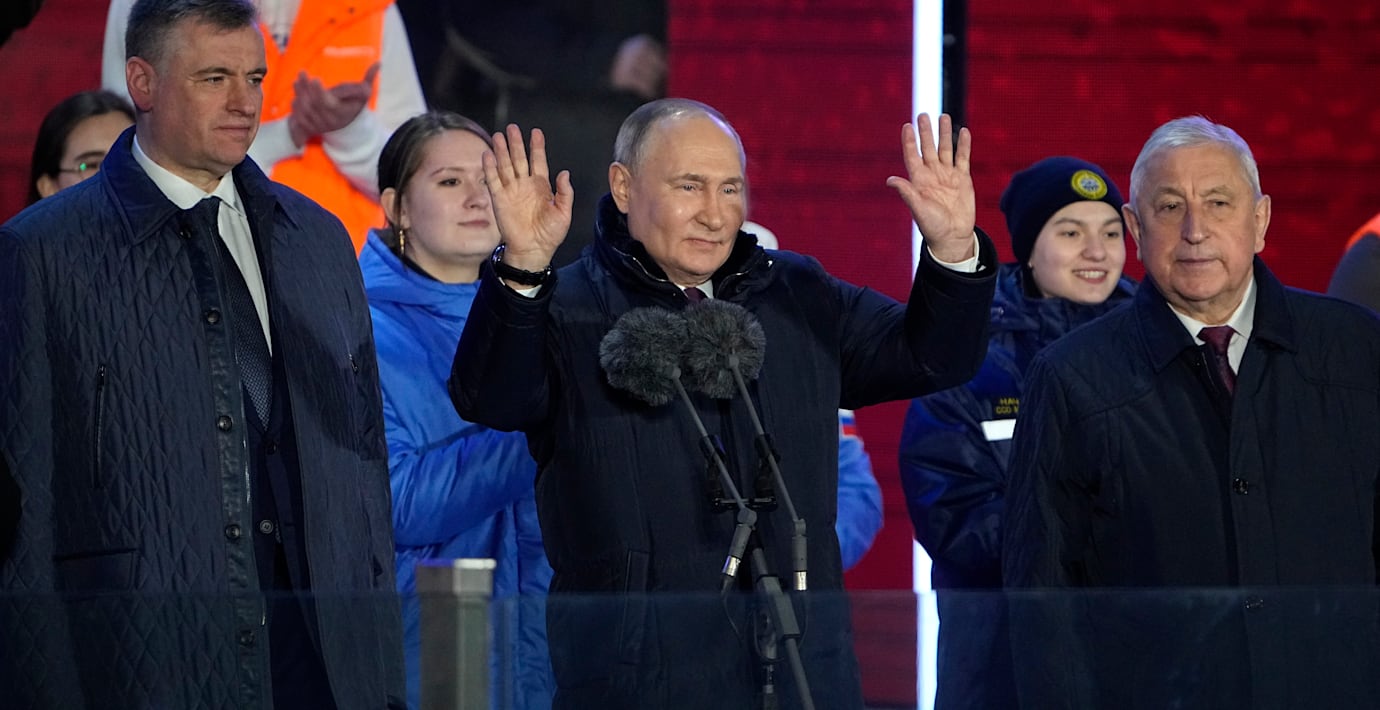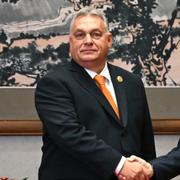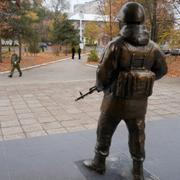bakgrund
Ryska presidentvalet 2024
Wikipedia (en)
Presidential elections were held in Russia from 15 to 17 March 2024. It was the eighth presidential election in the country. The incumbent president Vladimir Putin claimed victory with 87% of the vote, the highest such percentage in a presidential election in post-Soviet Russia, gaining a fifth term in what was widely viewed as a foregone conclusion. He is scheduled to be inaugurated on 7 May 2024.In November 2023, Boris Nadezhdin, a former member of the State Duma, became the first person backed by a registered political party to announce his candidacy, running on an anti-war platform. He was followed by incumbent and independent candidate Vladimir Putin in December 2023, who was eligible to seek re-election as a result of the 2020 constitutional amendments. Later the same month, Leonid Slutsky of the Liberal Democratic Party, Nikolay Kharitonov of the Communist Party and Vladislav Davankov of New People announced their candidacies.
Other candidates also declared their candidacy but were barred for various reasons by the Central Election Commission (CEC). As was the case in the 2018 presidential election, the most prominent opposition leader, Alexei Navalny, was barred from running due to a prior criminal conviction seen as politically motivated. Navalny died in prison in February 2024, weeks before the election, under suspicious circumstances. Nadezhdin, despite passing the initial stages of the process, on 8 February 2024, was also barred from running. The decision was announced at a special CEC session, citing alleged irregularities in the signatures of voters supporting his candidacy. Nadezhdin's status as the only explicitly anti-war candidate was widely regarded as the real reason for his disqualification, although Davankov promised "peace and negotiations on our own terms". As a result, Putin faced no credible opposition.Most international observers did not expect the election to be either free or fair, with Putin having increased political repressions after launching his full-scale war with Ukraine in 2022. The elections were also held in the Russian-occupied territories of Ukraine. There were reports of irregularities, including ballot stuffing and coercion.



